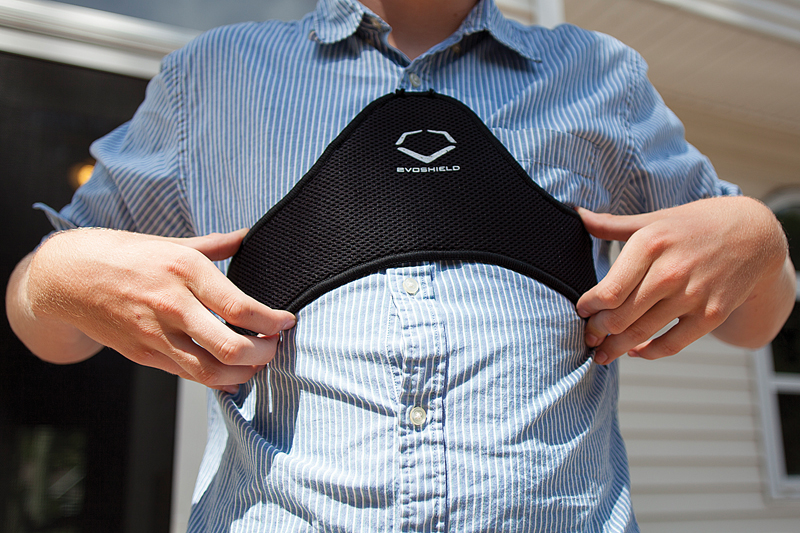15-year-old Jack Crowley’s survival story is helping save others

“All of a sudden, I couldn’t breathe at all,” he said. “I started feeling really light-headed, and then I went to my knees. That’s when I blacked out.”
Jack doesn’t remember much about the experience after his heart stopped. He knows he fell to his knees, but he doesn’t recall falling onto his back.
In another part of the baseball complex, Ms. Crowley was watching Owen play when a friend came to find her with fear in his eyes. Immediately, she knew something was wrong.
She was at Jack’s side within 90 seconds.
“He was so blue so quickly,” she said. “You knew he wasn’t able to get any oxygen.”
Jack’s head was bleeding because he’d suffered turf burn during his fall, and his eyes remained open and glassy while he lay on the ground.
“I kept focusing on his eyes because I felt like I might never see them open again,” Ms. Crowley said. “A mother should never see her kid like that.”
Retired police officer Chris Baumeister of Shoreham, whose two sons are best friends with Aidan and Owen, went to get help. He had sensed the same severity from years of tragedy witnessed in the line of duty.
“I heard the yell from John [Crowley] and his wife,” he recalled, “the scream I’ve heard too many times at work that means: ‘My kid is dying here.’ ”
In those brief moments, which felt like an eternity, Ms. Crowley thought of another teen from Shoreham-Wading River: Thomas Cutinella.
Tom was a junior playing his first year of varsity football for the school team. During an Oct. 1, 2014, game between Shoreham and Elwood/John Glenn, he went into a block on a simple running play.
Right after the play, he stumbled and then fell to the field just a few feet from the sideline. He died in the hospital a few hours later of a head injury sustained in that play.
Tom’s death devastated the Shoreham-Wading River community. Vigils drew hundreds of people, and his funeral service had to be broadcast over loudspeakers to attendees outside the church. Shoreham went on to win that year’s county championship after an undefeated season, and a new turf field will be named in Tom’s honor.
Seven months after that tragedy, another one almost befell the district.
“We all grieved terribly for [Tom],” Ms. Crowley said. “[When Jack fell], it was like a collective scream: ‘No, no, we can’t do that again.’ ”
Jack did not die that day, though, at least not truly. Mr. Baumeister called first responders and then remembered there was an AED present.
An AED could not have saved Tom, but the machine did save Jack.
Right after the shock jump-started his heart, Jack began speaking. He asserted that he was fine and asked to go home.
“It was scary, but I really didn’t know what was going on,” he said. “At first, I had no idea what had happened.
An ambulance took him to St. Charles Hospital in Port Jefferson, which then transferred him to Stony Brook University Hospital so his heart could be monitored. With the appetite of a 15-year-old athlete, he asked the ambulance driver if they could stop at McDonald’s on the way.
Jack stayed in the hospital for two nights. Then, doctors told him to keep his heart rate down — akin to prison for a teenager who lives and breathes activity — for six weeks to ensure that his heart did not suffer long-term damage.
“It was the longest six weeks of my life,” he sighed.









